If your company has suddenly transitioned to remote work amid the COVID-19 pandemic, you may be concerned about how to optimize collaboration among your employees while protecting sensitive data.
If you’ve watched the news lately, you’ve probably seen trending stories about online meetings being crashed by hackers. Fortunately, collaboration platform developers are constantly improving security features to mitigate such risks. One of these platforms is Microsoft Teams, which offers a plethora of communication possibilities to make collaboration more effective. Here are some Microsoft Teams security features that keep your data and dialogue private during online meetings.
Data Control Settings for Subscribers
Microsoft Teams subscribers maintain ownership of their data. Microsoft only uses your company’s information to provide the services you signed up for. That means you don’t have to worry about unknown third-parties seeing sensitive information since Microsoft doesn’t share it with others.
Meeting Settings
With Microsoft Teams, meeting moderators can decide who may join the meeting directly and who should be granted permission to attend. You can also dictate which attendees are allowed to record meetings. Additionally, Microsoft Teams enables you to control who shares content to ensure that inappropriate information isn’t made public. One way to do that is to designate participants who are allowed to share content as “presenters” while all others are labeled as “attendees,” meaning they are not allowed to post data.
Multi-Factor Authentication and Encryption
Remote workers may be signing in on unsecured personal devices from unfamiliar locations, such as places with public wi-fi. These scenarios make your network more vulnerable. If your company has only recently switched to remote work, you may not readily recognize unfamiliar log-in patterns that could indicate a security problem. Microsoft Teams uses multi-factor authentication to protect your network. Multi-factor authentication requires employees to verify their identity by logging in with additional information besides a password. The platform also encrypts notes, files, and other uploaded information to keep it from falling into the wrong hands.
Information Barriers and External Access
Microsoft Teams has established policies to keep outside entities from connecting to groups they’re not affiliated with. This keeps unwanted visitors out of one-on-one chats and team meetings. With external access, you can control which organizations you collaborate with. It’s possible to use this feature with outside business associates who use Skype, too. Groups can also admit individuals who aren’t normally part of the team by setting up secure guest access.
Communication Compliance
This feature gives you the ability to scan internal and external communications and report anything that doesn’t align with your company’s policies. Designated reviewers investigate questionable emails and other correspondence and respond promptly to remedy any threatening activity.
Advanced Threat Protection
Advanced Threat Protection (ATP) works with Microsoft Teams and other applications that integrate with it. With ATP, you can screen the content you’re managing in these applications to check for malware — the most costly cyber attack for businesses and organizations — and other threats. Meeting organizers can block suspicious content before it overtakes your network.
As hackers take advantage of the public health crisis to ramp up their attacks, the federal government has been receiving two to three times as many cybercrime reports as it did just a few months ago. Partnering with a reputable IT company enables you to improve overall network security and get the most out of Microsoft Teams and other cloud-based applications while complying with safety protocols. Using secure collaboration tools makes it possible to safeguard sensitive data so you can focus on building morale among team members and working toward your goals during this challenging time.
Schedule Your Cloud Services Consultation
Ready to make a move to the cloud? TAG is ready to help with any or all cloud services from a private cloud, public cloud, or Microsoft 365 services.
